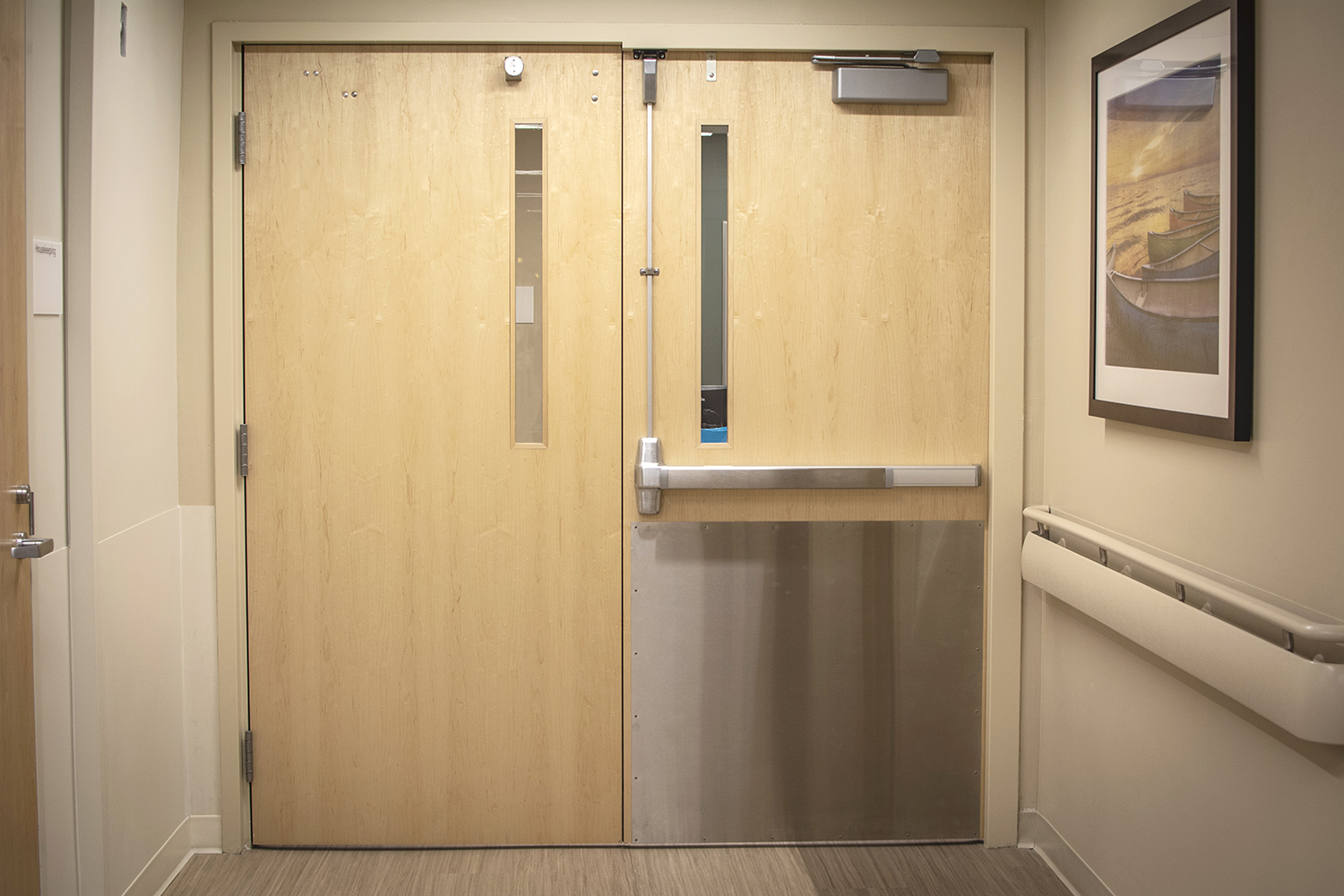Regular inspections of fire doors are required by code and are essential to maintaining your passive fire protection.
NFPA 80 requires annual inspections of all fire doors. In addition to code requirements, regular inspections of fire doors are essential to maintaining your passive fire protection. Fire doors are an integral piece of effective compartmentation, to ensure your building is safe in the event of a fire.
Fire Door Inspections & Repairs
Gleeson Powers’ DHI and Intertek certified door inspectors perform thorough inspections of all fire doors in accordance with NFPA 80 5.2. We offer inspection services for hospitals, corporate offices, and college and universities. Our inspectors are trained in all aspects of fire door codes and inspection requirements. We document all work and provide detailed inspection results as well as executive summaries for senior leadership.



Documentation
All customers are provided with detailed documentation using The Life Safety Tracker System®, including inspection results, before and after pictures, detailed descriptions of each item, and verification of all items per code regulations. Reports can be filtered by building, floor, area, or item. These reports can serve as third party verification that your fire doors have been inspected, repaired and/or replaced in accordance to code requirements.
Inspection Scheduling
The Life Safety Tracker System® can easily schedule inspections and maintenance checks of all fire doors. Reminders can be sent to the facility manager, or Gleeson Powers can manage the inspection scheduling for you. Using The Life Safety Tracker System® means that the next time an item is up for inspection, you have a record – all in one place – of all previous inspections, repairs, and replacements.
Need Your Fire Dampers Inspected?
Gleeson Powers also offers Fire Damper Inspections. NFPA and The Joint Commission require periodic inspection of fire, smoke, and fire & smoke dampers as per NFP 80, 90 & 101. All fire dampers should be inspected within one year of installation. Thereafter, they are required to be inspected every 4 years, except in hospitals where the requirement is every 6 years. In addition to code requirements, regular inspections of fire and smoke dampers is essential to maintaining your passive fire protection – in the event of a fire, fire and smoke dampers must close to ensure the prevention of the spread of fire through the ventilation system.

